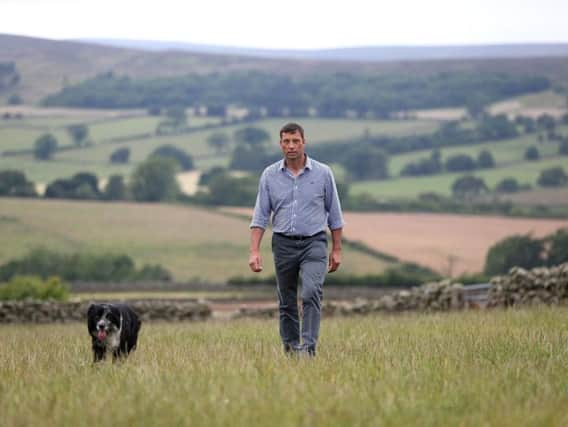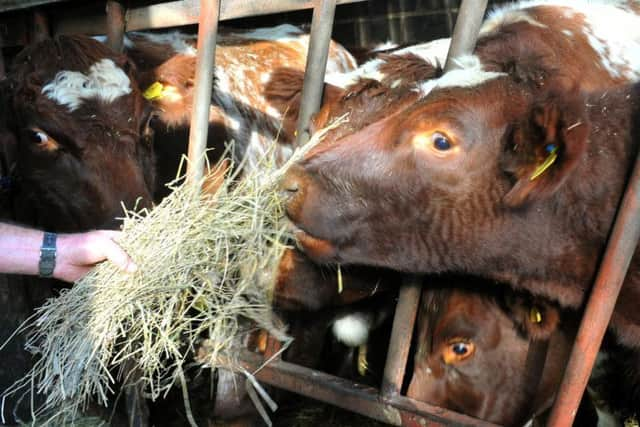'First beef export deal with China for more than 20 years sends message to the world about buying British'




Advertisement
Hide AdAdvertisement
Hide AdNorth York Moors farmer Richard Findlay, who is the chairman of the livestock board at the National Farmers’ Union, said the deal announced this week for British beef to be exported to China by the end of the year, demonstrates the enormous value of Britain’s high food traceability standards at a crucial time for the nation’s export trade.
Uncertainty pervades over the future of frictionless trade with Europe for British goods, and though the nation’s agricultural industry is more financially reliant on lamb exports than beef exports - Britain is a net importer of beef - Mr Findlay said the new Chinese deal sends a signal to the rest of the world that could trigger further international trade in British beef.
A ban on exports of British beef to China, in place since 1996 following the BSE outbreak, was lifted last June. Negotiations to open official market access have continued since and on Monday a formal protocol was signed by Farming Minister and North Yorkshire MP Robert Goodwill, and China’s UK ambassador Liu Xiaoming.
Mr Findlay welcomed the agreement, telling The Yorkshire Post: “There is still quite a way to go and we will still have a lot of competition for the same Chinese market from the likes of Australia and New Zealand, but we have the most robust traceability system in the world, tied in with farm assurance.”
Advertisement
Hide AdAdvertisement
Hide AdBeef cuts that are less commonly consumed in Britain but are highly sought in China, such as liver, kidney and tripe, will drive much of the initial demand, adding value to beef carcasses, Mr Findlay said.
“China has had its own food scares and is quite pernickety about production standards, so this deal is really good news and will send a message to the rest of the world where they might be looking to buy beef,” he added.
The Government believes the deal to be worth £230m to the British beef industry in the first five years alone, a figure which the livestock boss described as “a good start”.
“In the scale of things, £230m over five years isn’t a lot. It’s like dipping a toe in an ocean, but it’s a start. From nothing, it’s a great first step and could lead to much bigger things. There is a lot of interest in what we produce and this proves we can do deals and reach markets outside of the EU if countries like China are happy with our welfare and abattoir standards, traceability and labelling.”
Advertisement
Hide AdAdvertisement
Hide AdWith post-Brexit EU trade still undecided, Mr Findlay added: “Any form of stability in the chaos we have at the moment must be a good thing but there is more concern about lamb than beef.”
More British lamb is sold to EU countries than elsewhere. Trade with the EU accounts for 95 per cent of all British lamb exports.